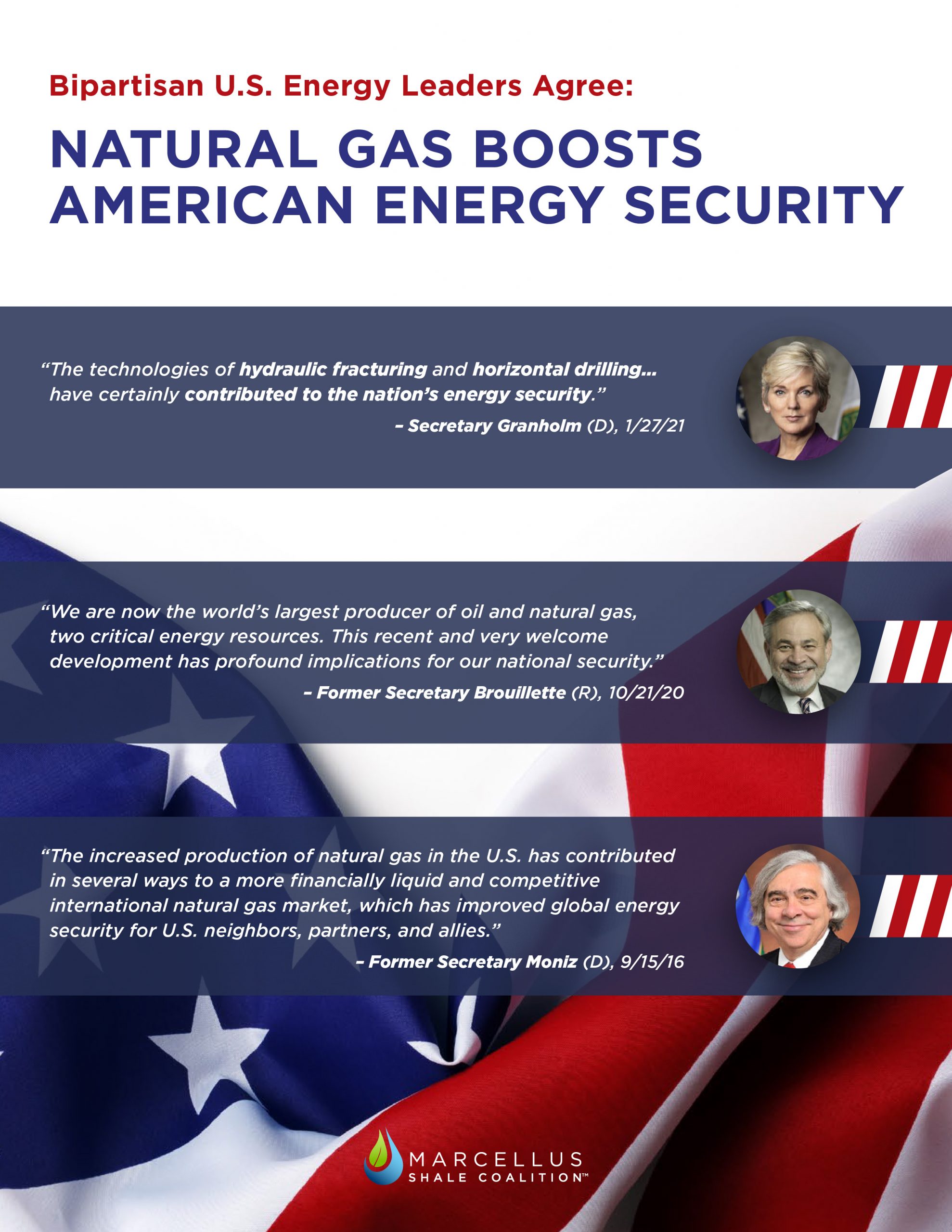If there’s one thing U.S. Energy Department leaders from both sides of the political aisle can agree upon, it’s that American natural gas development is directly tied to our nation’s energy security.
“The technologies of hydraulic fracturing and horizontal drilling…have certainly contributed to the nation’s energy security,” Energy Secretary Jennifer Granholm told Congress during her confirmation hearing this year.
Indeed, the birth of unconventional shale development and its widespread deployment is what enabled the U.S. to become the world’s top natural gas and oil producer. At the same time, because of gas’ increasing use in the power sector, America is reducing energy-related greenhouse gas emissions faster than any other country in the world.
Carbon emissions tied to Pennsylvania’s power sector, for example, declined 41% compared to our peak 2005 levels, state data shows, and other harmful emissions from volatile organic compounds (VOCs) such as sulfur oxides and nitrogen oxide have declined 91% and 87%, respectively.
This correlates to the shale revolution that came underway around the same time, increasing our domestic supply of the clean energy resource and its share in the electric generation mix.
“We are now the world’s largest producer of oil and natural gas” former Energy Secretary Dan Brouillette said last fall. “This recent and very welcome development has profound implications for our national security.”

Having an ample supply of natural gas and other energy resources means we can spread this energy security – and corresponding environmental progress – to the world, helping achieve climate goals at a global scale. Moreover, increased domestic energy security strengthens American geopolitical ties when used for diplomatic purposes and trade negotiations.
“The increased production of natural gas in the U.S. has contributed in several ways to a more financially liquid and competitive international natural gas market,” said former Energy Secretary Ernest Moniz. “Which has improved global energy security for U.S. neighbors, partners, and allies.”
But all this progress rests in America’s ability to adopt commonsense policies that recognize and promote the continued use of domestic natural gas development. Impeding pipeline construction and other critical energy infrastructure projects that would deliver more resources to at-risk areas does absolutely nothing to move our climate progress forward.
“As we celebrate Independence Day, let’s not forget that energy security is national security, driven by the men and women of the natural gas industry innovating and working in overdrive to meet clean energy and economic development goals worldwide,” MSC’s Callahan penned over the Fourth of July weekend.





